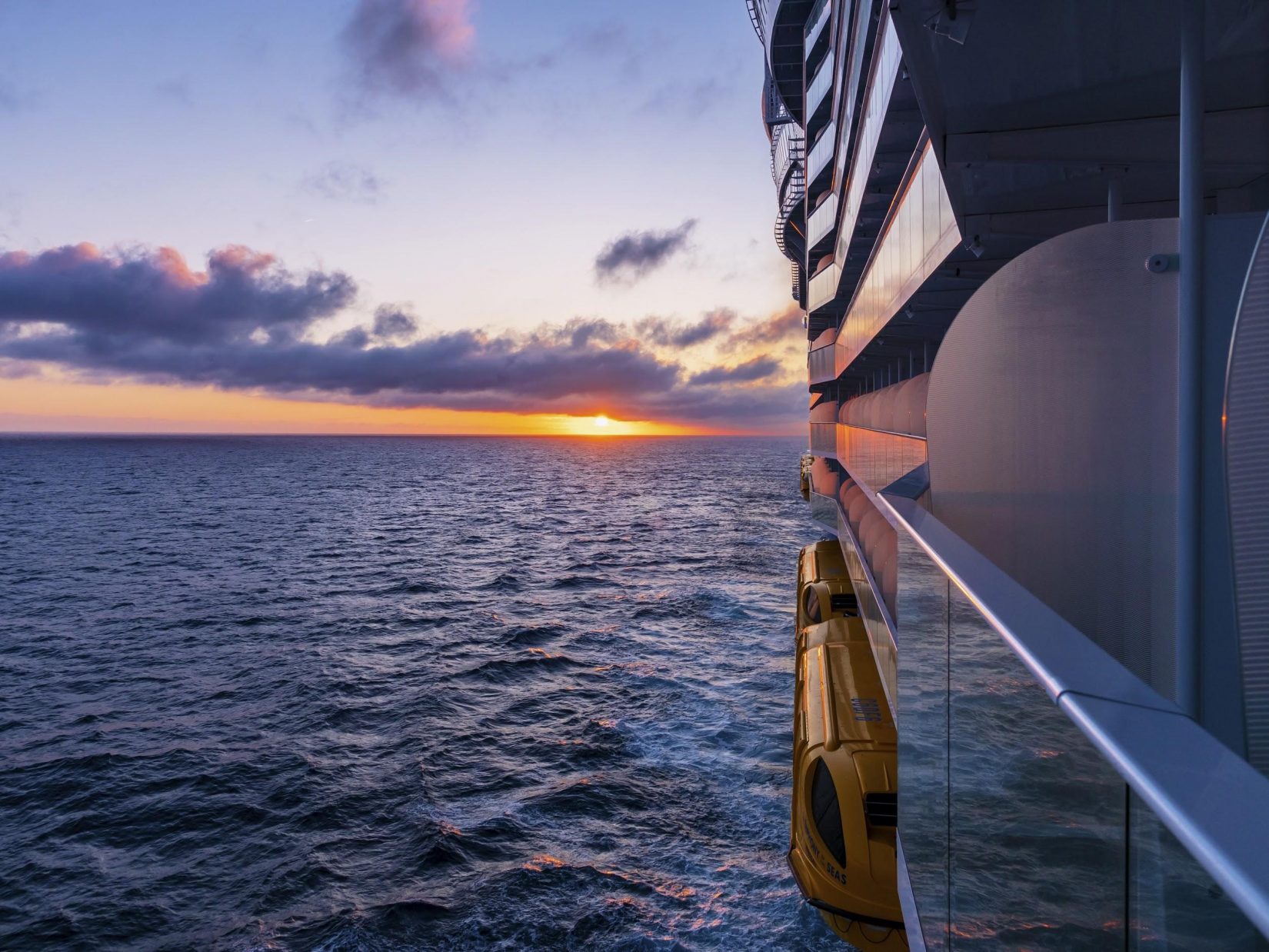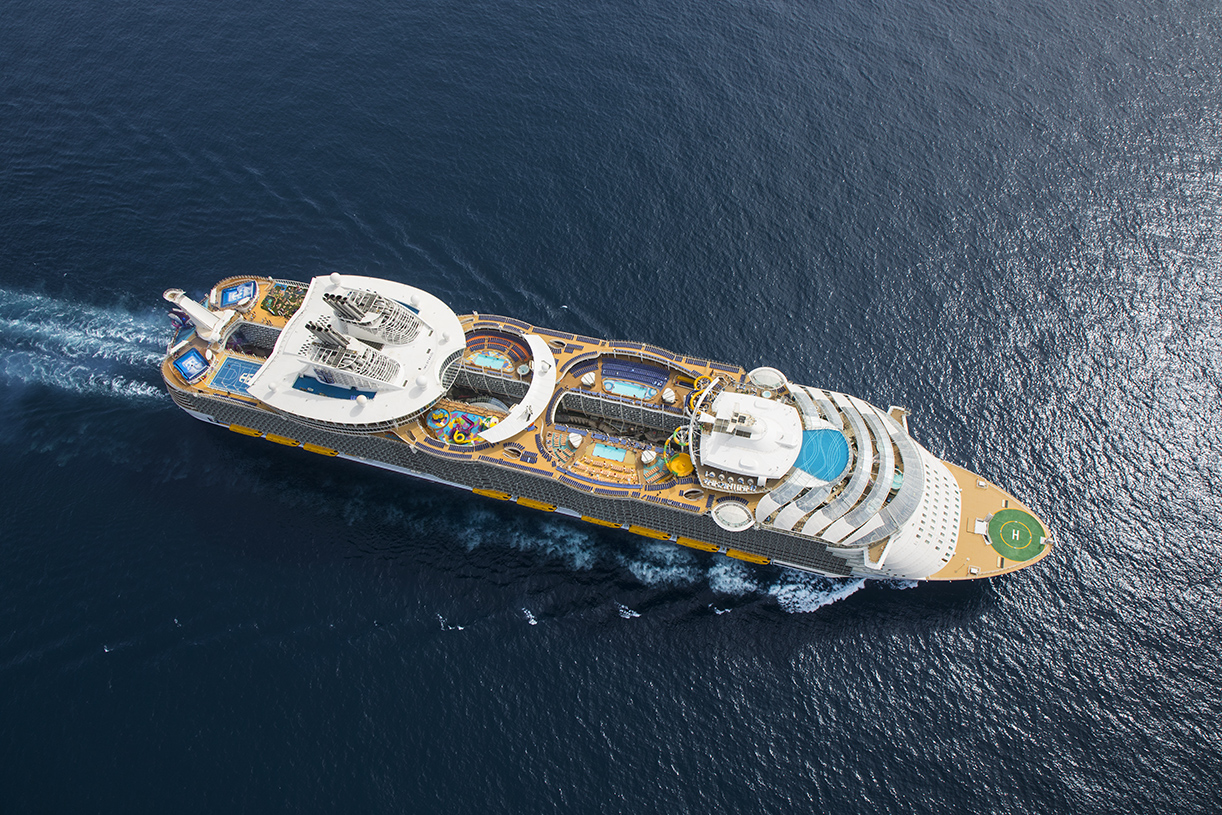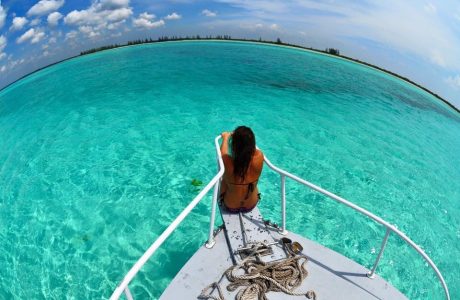One of the most common questions first-time cruisers have is “What if I get seasick?” We understand where the concern comes from, and we have answers. We’ve enlisted Dr. Benjamin Shore, Chief Medical Consultant at Royal Caribbean, to break down the basics and whether it’s actually common for guests to experience seasickness while vacationing at sea.
“Considering the large size of today’s cruise ships, seasickness is rarely a problem,” says Dr. Benjamin Shore. He adds that with innovative design and engineering, ships can also safely navigate around inclement weather, and use stabilizers—fins built off a ship’s port and starboard sides along the water line—to reduce side-to-side motion so most guests never experience any motion sickness.
Before we get to the specifics, here are the basics: Motion sickness occurs when what you see conflicts with what your inner ear senses. In other words, if you’re sitting in a car (not moving) but your inner ear detects movement (the car just hit 70 mph on the highway), the two signals being sent to your brain don’t match. Those mixed signals confuse the brain, and the sensations and symptoms (dizziness, nausea) are the result.
In the event that seasickness does develop, Dr. Shore assures that it’s unlikely to really interrupt your adventure, since all Royal Caribbean ships have motion sickness medications, like meclizine, readily available at the dedicated Medical Center on each of our ships, free of charge.
“Additionally, for more troublesome seasickness, our Medical Centers also carry promethazine and metoclopramide,” Dr. Shore says.

Sometimes the best treatment is prevention. “It’s best that guests who know they are prone to seasickness consult their doctor prior to departure,” Dr. Shore says. If your personal physician thinks it’s appropriate, he or she can prescribe a patch that you can wear to prevent the onset of seasickness. “For prescription patches like Transderm Scop, it’s important for it to be applied prior to boarding to be effective,” he adds.

Dr. Shore notes that there are also lots of natural remedies that can help alleviate motion sickness. “Anecdotally, ginger seems to be helpful, and some people find various aromas (like anise, basil, chamomile and peppermint) or eating dry crackers, even after the onset, of seasickness can help.” If a few sips of ginger ale or chewing fresh ginger doesn’t do the trick, he also suggests going for a short walk to the center of the ship, the most balanced area on board and therefore least likely to produce seasickness symptoms.
An unexpected solution Dr. Shore suggests is “the smelling of newspaper print!” He says, “science has no idea why this works so well, but it actually seems to diminish the sensation of nausea.”
With Dr. Shore’s advice and Royal Caribbean’s staff of medical professionals, it’s only smooth sailing for our guests!
If you’re ready to explore Royal Caribbean’s many destinations (more than 260 ports around the world), click here to set sail on your next vacation.




